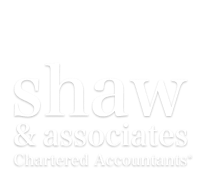Money For Nothing And Your Rent For Free: Will Incorporating Reduce My Rental Income Taxes?
December 4th, 2017
Posted in: Business Advisory

You’re thinking seriously about buying a rental property–now what? The first, obvious thing seems to be to incorporate, because renting properties is a business, but that might not be the best step for you tax-wise. There are definitely pros and cons, as noted by Evelyn Jacks at MoneySense.com.
Taxation laws in Canada are not set up to be particularly beneficial for people who own rental properties to see significant tax savings if they incorporate.
There are also other considerations–incorporating has an expense associated with it up front, and it creates multiple levels of complexity with corporate reporting, more complicated income tax filing, and dividend structures. Unless you have five or more employees working in your rental business, incorporating may not be your best choice.
You also need to be aware that rolling over personally held property to a corporation may involve a land transfer tax–Alberta does not have one, but most other provinces and territories do, so if your property is out of province, this is probably something you’ll need to deal with.
But wait, you say, don’t I need to incorporate to protect myself and my bank accounts and properties from any potential insurance or legal exposure? That would likely be your most compelling reason to incorporate for rental properties, but these issues can also be addressed with a comprehensive insurance policy–that’s a discussion to have with your insurance representative. If you hold a mortgage on the rental property, the bank will most likely require a personal guarantee against default as well.
Now, let’s talk about what happens if you turn a primary residence into a revenue-generating property, or when you sell your rental property. You will most likely be looking at a capital gains tax at this point. Even if you don’t sell your primary residence, but change part of it to a rental property, you still may be looking at a capital gains tax–the government is interested in any change in the use of your property.
Canadians don’t incur a capital gains tax when they sell their primary residences, but changing a primary residence into a rental property would negate that exception.
As you can see, buying a rental property, operating a rental property for income, and selling a rental property can be a complicated undertaking. Our best advice–come talk to us at Shaw & Associates Chartered Accountants, and also talk to your lawyer and your insurance agent before you buy a rental property or start renting out part of your existing property. Pre-planning can save you a lot of headaches in the short and long term.

